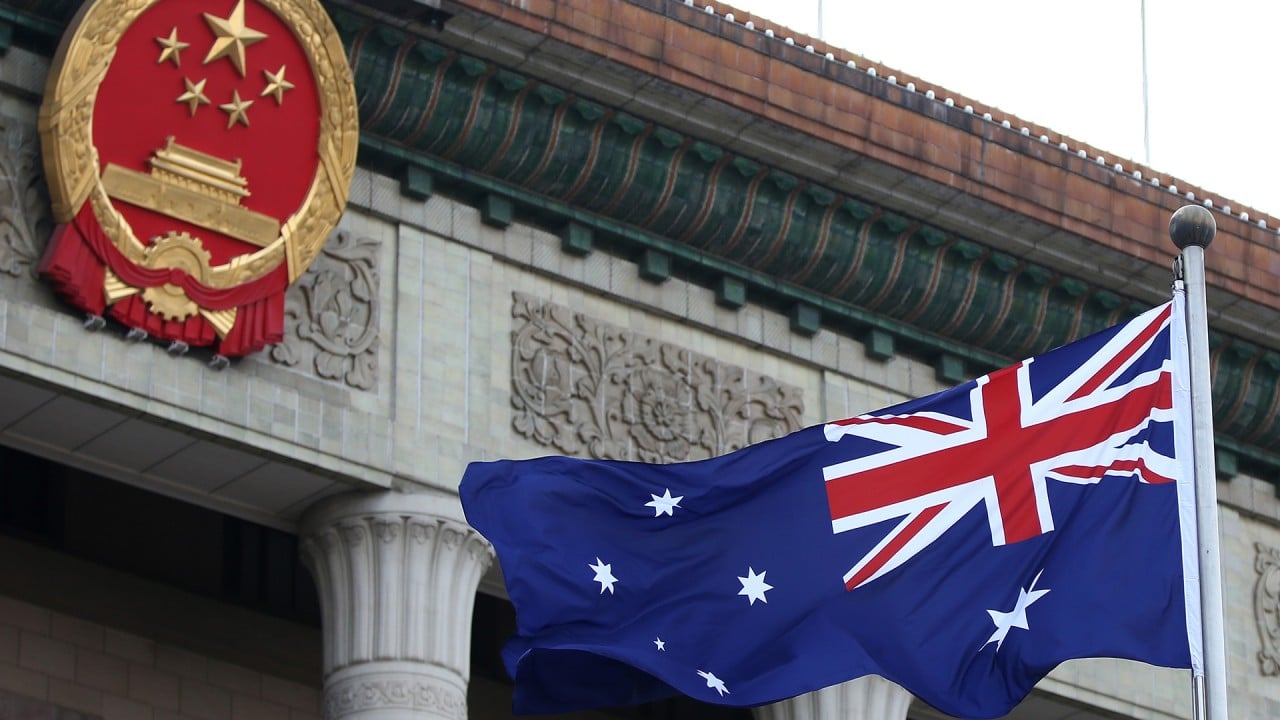
‘China wants to lead, rather than simply join’: top Australian diplomat takes aim at Beijing’s foreign policy
- Frances Adamson has accused Beijing of setting its own agenda internationally rather than working collaboratively with other countries
- She says the main challenge for Australia is helping to shape a new global order without the influence of an inwardly focused US
Frances Adamson, secretary of the Department of Foreign Affairs and Trade, on Wednesday said while the world had done a “lot of thinking about China’s power, and what it means”, it was not clear Beijing had “carefully considered other countries’ reactions to its conduct internationally”.
Defiant Australia PM responds to China’s list of 14 grievances
“China may have reached a point where it believes that it can largely set the terms of its future engagement with the world,” said Adamson, who was speaking at the National Security College of Australian National University in Canberra. “If it has, I believe it is mistaken – and that is because there is far more to be gained for China, and for everyone else, through working constructively and collaboratively within the international system, without resort to pressure or coercion.”
China wants to lead, rather simply join, international institutions
Adamson, a former ambassador to Beijing who has also served postings in Hong Kong and Taiwan, said that while China’s “impressive” economic development had generated economic benefits for countries including Australia, it had also brought disruption to the region.
“Unsurprisingly, this has also meant that China wants to set, rather than merely adopt, international standards,” said Adamson, who was speaking at an event marking the 10th anniversary of the National Security College. “China wants to lead, rather simply join, international institutions.”

07:55
Australia ditched diplomacy for ‘adversarial approach’ to China and ‘a pat on the head’ from US
Adamson also rejected suggestions that Canberra took policy directions from Washington, its main security ally, saying it was not “surprising that countries with similar values will come to similar conclusions”.
“That stands to reason, but the order in which we do it, the pace at which we do it, the actual decisions themselves are based on national interests and are based on thorough discussion and consideration of all elements of decisions through the proper processes,” she said.
Canberra’s top foreign affairs bureaucrat accuses China of seeking to stoke ethnic divisions in Australia
Although Beijing had insisted the measures were taken in response to trade and quarantine violations, the Chinese embassy in Canberra last week said the proposal for the international coronavirus inquiry was among 14 grievances that were “poisoning bilateral relations”.
The list of complaints, included in a dossier leaked to Australian media, also included Canberra’s decision to ban Huawei from its 5G network, “unfriendly or antagonistic” media reports about China, and the passage in 2018 of foreign interference legislation widely seen as aimed at Beijing.

Foreign Ministry Spokesman Zhao Lijian on Tuesday noted Morrison’s “positive comments on the global influence of China’s economic growth”, while urging Australia to make “independent, objective, sensible choices that serve its own interests”.
In her far-reaching speech on foreign policy on Wednesday, Adamson said Australia in the future would have to pursue its interests in a “tougher, riskier environment, defined by strategic competition” between China and the United States, but would not be a bystander in the region.
“The main challenge for Australia’s foreign policy is one of shaping, with other countries, a regional and global order that responds to the new realities of power,” she said. “Inevitably we are involved in a competition for influence because how the regional order evolves will profoundly shape our security and other interests.”
In the harsher light of the earlier-to-mid 21st century, we have to acknowledge that the United States cannot be expected to lead in the way it once did
The career diplomat also offered a frank assessment of declining US influence.
Adamson said cooperation with countries such as India, Indonesia and Japan – and gatherings such as the East Asia Summit, Asia-Pacific Economic Cooperation and the G20 – would be crucial to regional order and stability.
“While a reasonable bookmaker might have concluded none of these forums was worth a wager in 2020, each has taken place and each has provided valuable opportunities for global engagement and cooperation and for giving voice to some important principles,” she said.

